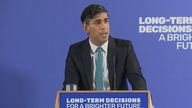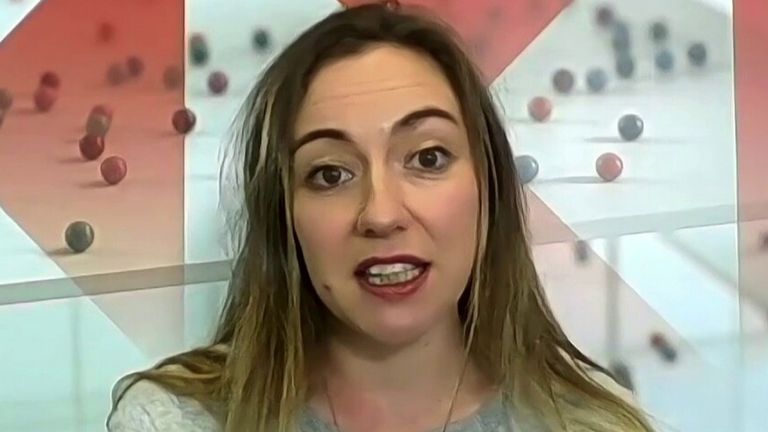Earlier interest rate cuts in focus after big easing of inflation
Financial markets and economists are talking up the prospect of earlier-than-expected interest rate cuts after the pace of price growth slowed sharply in November.
Inflation stood at an annual rate of 3.9% last month, according to the Office for National Statistics (ONS), a dramatic fall from the 4.6% recorded a month earlier.
Price increases slowed in transport, recreation, culture, and food with the biggest downward pressure coming from fuel.
Economists polled by Reuters had forecast a fall to 4.4%.
But the decrease is less steep than the drop from September when the consumer price index (CPI) measure of inflation tumbled from 6.7%.
Prices are still rising, just at a reduced pace.
Prices for some goods fell, the ONS said.
The cost of raw materials dropped by 2.6%, transport costs tumbled by 1.4% and goods leaving factories fell by 0.2%.
The figures published on Wednesday morning are still just under double the 2% inflation target aimed for by policymakers at the Bank of England.
Such highs are why the central bank said it is too early to talk about cutting interest rates which have made the cost of borrowing more expensive in an attempt to bring inflation down.
Despite falling far short of the Bank’s target, inflation is at a more than two-year low – not since September 2021 has such a rate been seen – an indication of the scale of the cost of living crisis in recent months.
Latest figures on rents and house prices, also released by the ONS on Wednesday morning, demonstrated some of the impact of higher borrowing costs – a drop in property prices as mortgage bills rise.
Average UK house prices fell 1.2% in the year to October 2023, a steeper drop than the 0.6% decrease in the 12 months to September 2023.
Rent hikes reached another high.
Tenants on average paid 6.2% more in the 12 months to November 2023.
Another key metric of inflation, which does not track items susceptible to sharp rises and falls, such as food and energy, also fell.
The dip in core inflation – from 5.7% to 5.1% – will be of interest to the members of the Bank’s monetary policy committee (MPC) tasked with deciding interest rates.
The latest data means the UK has been brought in line with similar-sized G7 economies and has the same inflation rate as France and higher rates than Germany and the United States.
UK government borrowing costs fell as bond yields dropped after the announcement. Market expectations shifted as investors believe the Bank of England will bring down rates in the first half of 2024, rather than later in the year.
Be the first to get Breaking News
Install the Sky News app for free



Bank governor Andrew Bailey has repeatedly hinted that market expectations for a drop in Bank rate, from 5.25%, in the spring are ahead of its own thinking.
The Bank is particularly worried by the pace of wage growth which, it fears, will stoke demand in the economy and therefore inflation in the months to come.
But Samuel Tombs, chief UK economist at Pantheon Macroeconomics, said of the ONS data: “November’s surprisingly sharp fall in CPI inflation reinforces the likelihood that the MPC will begin to reduce bank rates in the first half of 2024, far earlier than it has been prepared to signal so far.”
Financial market data suggested a boost for bets that the Bank could start to ease pressure on borrowers from March – with a cut of more than 1% possible by the end of the year.
Chancellor Jeremy Hunt said: “We are starting to remove inflationary pressures from the economy.
“Alongside the business tax cuts announced in the Autumn Statement, this means we are back on the path to healthy, sustainable growth.
“But many families are still struggling with high prices so we will continue to prioritise measures that help with cost of living pressures.”




